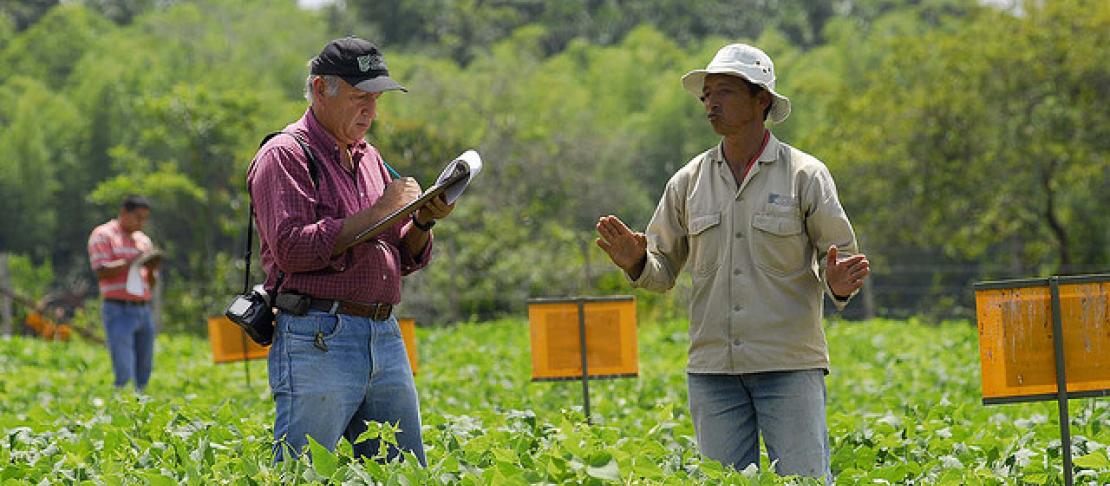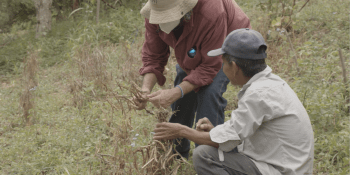Building information networks of maize and beans in Colombia

As part of the project, Tailored agro-climate services and food security information for better decision making - AgroClimas, at the CGIAR Research Program on Climate Change, Agriculture and Food Security (CCAFS) Latin America, we started mapping activities of stakeholders in maize growing regions in the Colombian departments of Cordóba and Tolima, and in beans in Santander.
The goal of this activity is to map the dynamics of maize and beans production with focus on the different actors that deliver information (technical, climatic, agricultural, etc.) to the farmers. Therefore, it is necessary as a first step to know the type of information that farmers receive, the source of the information, what stakeholders are considered more reliable, which formats are preferred, under what conditions information received is adopted, and what the information gaps are that are not yet covered.
The idea is to perform a complete mapping based on interviews and focus group discussions with farmers in each region, reaching more than 200 farmers and conducting 35 interviews with key stakeholders. These activities began on 8 April with interviews conducted with stakeholders from the National Agricultural Research Institution (Corpoica in Spanish) and the National Cereal Growers Federation (Fenalce). The interviewees shared testimonials that allow us to better understand the dynamics of the zones:
"Now we have learned to beter focus our work locally, and search subregions where we can conduct pilots, because the climatic conditions of our region are getting really crazy!" said technical assistants from Fenalce Córdoba.
"Sometimes, the parents themselves encourage their children to migrate to the cities, because they think that in the farmlands they don't have future; that's why most of the farmers are old people," said Sergio Mejia, a Corpoica researcher.
"The traditional maize, the creole variety it's overrated because only produce two tons per hectare, but there is a huge potential and a great space to contribute from science," saod Juan Lucas Restrepo, the executive director of Corpoica.
The AgroClimas project is implemented in Colombia, Guatemala and Honduras by the International Center for Tropical Agriculture (CIAT) and Bioversity International, jointly with key partners such as the International Potato Center (CIP), the International Research Institute for Climate and Society (IRI), the International Livestock Research Institute (ILRI), the Center for Tropical Agricultural Research and Education (CATIE), and Action Against Hunger (ACF).
Diana Giraldo is the Leader of AgroClimas project, and works for the International Center for Tropical Agriculture (CIAT) in Cali, Colombia



